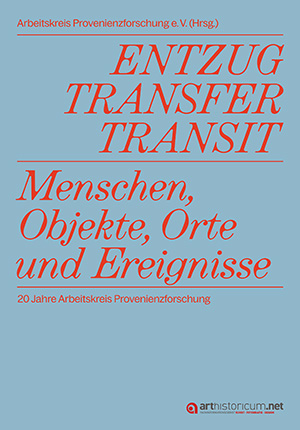Zitationsvorschlag
Lizenz (Kapitel)

Dieses Werk steht unter der Lizenz Creative Commons Namensnennung 4.0 International.
Identifier (Buch)
Veröffentlicht
Auf dem Weg zu einer emanzipierten Provenienzforschung
On a path towards emancipated provenance research
The paper reflects on the public and academic debates surrounding 20 years of provenance research in the Germanspeaking world. It suggests that the field of German provenance research has in the meantime become a »field« in the sense of the French sociologist Pierre Bourdieu. Operating In this field are scholars, institutions of cultural preservation, political actors, their executive entities, journalists, and the (legal) representatives of restitution claimants. The disputes about specific profits and rules that are relevant for the game are outlined from a sociological perspective in the context of their rivalry with art history and the restitution expectations they raise. In connection with differentiated research realities, field theory in particular suggests, however, that the seemingly contradictory and partly polemic public criticism of provenance research should be primarily interpreted as a rhetorical exercise.
Especially since provenance research has been practiced over the last two decades with the support of political research funding, but without associated influence on substance, its academic results could become part of cultural memory. As an academic discipline, provenance research is neither dependent on politics nor on restitution decisions. This approach is neither advocating in favour of or against restitution. It is a declaration for an emancipated provenance research which will add its perspective in a healthy competition and fruitful cooperation with established disciplines, particularly in universities and institutions of cultural preservation, while being able to develop its academic and memory-cultural potential.







